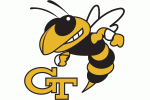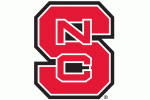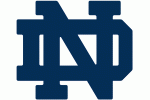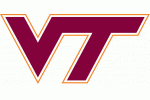Mary Willingham's research application has been released and in it she says she is researching incidence of ADHD and learning disabilities, but more important she says she will be using data that cannot be connected to individual students. Yet the conclusions that have made her famous are about reading levels and she has made accusations connected to specific groups of students.
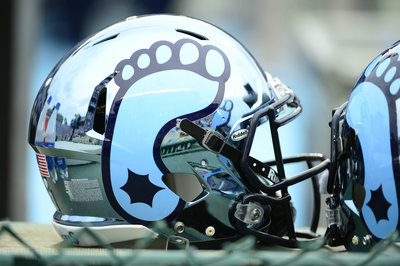 The credibility of former UNC learning specialist Mary Willingham took another hit today as her research applications were released, and they show two primary inconsistencies. First, the stated purpose of her research was to investigate the occurrence of attention deficit hyperactivity disorder (ADHD) and/or learning disabilities (LD) in freshman student-athletes, not reading and literacy levels as indicated to CNN earlier this year. Second, she indicated in her initial application and four separate revisions that her data would not include information that could be tied to specific individuals and yet she has revealed on a number of occasions that she has had access to identifiable data, including names and grade point averages.
The credibility of former UNC learning specialist Mary Willingham took another hit today as her research applications were released, and they show two primary inconsistencies. First, the stated purpose of her research was to investigate the occurrence of attention deficit hyperactivity disorder (ADHD) and/or learning disabilities (LD) in freshman student-athletes, not reading and literacy levels as indicated to CNN earlier this year. Second, she indicated in her initial application and four separate revisions that her data would not include information that could be tied to specific individuals and yet she has revealed on a number of occasions that she has had access to identifiable data, including names and grade point averages.
In order for Willingham to conduct her research using data from UNC, she had to submit an application to the school's Institutional Review Board (IRB), which monitors research and oversees research involving human subjects. Pretty much every university has an IRB so this process is not unique to Carolina. Willingham initially made an IRB application in 2008, and that application indicated the intent to study ADHD and LD in student-athletes. The application was updated four times in 2013, and in all five cases, the IRB indicated that the research did not involve human subjects and therefore did not require specific IRB approval.
At the risk of going too much inside baseball here, these are significant revelations. Willingham's methodology and access to data have always been at the crux of the legitimacy of her research, and these applications show significant discrepancies between her purported purpose and her public statements. The main points of the discrepancies are:
*Willingham's research application says she will be researching the incidence of ADHD and LD. At no point did she ever mention anything about data relating to reading or literacy levels.
*Her initial 2008 application indicates her data would have names but that the names would be removed or coded and she would have no way to access that information, which is pretty standard procedure for this kind of research. In research circles, this de-identified data is called secondary data. The four revisions she submitted in 2013 all indicated she would have access to secondary data only, and yet she has made plenty of public comments that indicate she had identifiable data.
*Her five submissions to the IRB mention the tests and screeners that will be used to identify ADHD and learning disabilities, including the now infamous Scholastic Abilities Test for Adults. But after UNC sought external review of her results, Willingham indicated that UNC had not provided the reviewers the full range of tests and scales she used, including SAT/ACT scores and Wechsler Adult Intelligence Scale (WAIS) scores. However neither her IRB application nor its four revisions ever mention her intent to use these measures.
In short, it would seem Mary Willingham misrepresented the purpose of her research to UNC. Not once in five separate IRB applications did she state her intent to research literacy levels of student-athletes, which is what she provided to CNN. Her research abstracts dealt only with the incidence of ADHD and LD. Moreover, on the same five occasions she indicated that she would only have access to secondary data and yet not only did she have access to identifiable data, but released that information in possible violation of educational privacy laws and research ethics and protocols.
Why does this even matter? It's important to remember the genesis of the whole Willingham sideshow. Willingham made a hyperbolic claim about the reading levels of entering freshmen student-athletes at UNC, a claim which Sara Ganim and CNN took at face value. Legitimate questions were asked about where she got her data and how she came up with her conclusions, and those conclusions were eviscerated by independent review. But even as her research crumbled around her, her status as a whistleblower protected her from questioning her motives and her history. The release of the research applications matters because now her motives and history must be called into question.
And this in turn leads to another series of questions:
Did Willingham purposely lie on her IRB applications? The original CNN story from January says that "As a graduate student at UNC-Greensboro, Willingham researched the reading levels of 183 UNC-Chapel Hill athletes who played football or basketball from 2004 to 2012." But the released IRB applications state that her research purpose was ADHD/LD, not reading level. Also, if the research was to support her masters thesis, then why does this research appear in only one paragraph in a 30-page paper?
Was this ever really about the student-athletes? Willingham has claimed that she has taken all of this action to support student-athletes who were denied an education. And yet she has shown she is willing to play fast and loose with the rules if it suits her, including calling out the 2005 UNC basketball team and the 2013 UNC football team.
What else has Willingham not been honest or ethical about? For at least five years, Willingham collected data on a topic she did not have permission to research and had access to identifiable data in contravention to her IRB clearance. Moreover, her position at UNC, even after she left athletics, allowed her to see transcripts of enrolled students, including athletes. How else would she have had the academic information on the 2013 football team? And yet she had no educational reason to access that data, which is unethical in its most charitable description. Also there was the case of the paper fragment that Willingham indicated had received an A-minus grade, a claim that was so preposterous that even Willingham herself had to walk back after a while, but not before it went viral.
What will the media do now? The media soft-pedaled UNC's independent review rebuke of her findings as a case of "she-said, they-said." Now that yet another layer of her credibility is in tatters, will Dan Kane of the News and Observer, Sara Ganim of CNN, and Paul Barrett of Business Week continue to stand by her and prop her up in the face of this latest development? Do they have too much invested in her and the narrative to let her founder? Or will they continue to succumb to the lazy journalism (H/T to Jim Pomeranz at Raleigh & Co.) that allowed things to get this far without a proper vetting?
In a court of law, this whole situation would be called fruit of the poisonous tree; in other words, if the evidence is obtained illegally, then anything gained from that evidence is out of bounds. Her research application is at best inaccurate and at worst fraudulent, and given this information any conclusions drawn from this tainted research must receive the highest level of scrutiny. But this battle is not being fought in a court of law, but rather in the court of public opinion. Some will see this latest salvo as further evidence of UNC's attempts to squelch Willingham. Others will likely see it for what it is, that there are serious questions about her motives, methodology, and now her veracity and ethics.
At the end of the day, it boils down to this: Willingham's IRB application was not accurate either in its scope or in its access and use of identifiable data. So we now have to ask:
*Did she intentionally misrepresent her research, or was she simply sloppy in its most basic procedures? Neither one is a particularly good look for someone who boastfully claimed her data was 100% accurate and claimed that the IRB was fully aware of what she was doing the whole time.
*If she intentionally misrepresented her research purpose, how can anything she has offered up be trusted and how can we trust what her real motives are?
*Did she change her findings to fit the narrative? Willingham has spent much of this year railing against the admission of underqualified student-athletes and that college athletics in general and UNC in particular do a disservice to these athletes by devising ways to keep them eligible (which was the crux of her testimony in the O'Bannon lawsuit and the Real Sports feature story). And yet her 2008 IRB application (and page 28 of her own thesis) state that with tutoring and support, these deficient student-athletes "did almost as well as the non-disabled students." Her own words would seem to punch a hole in one of her primary arguments, unless of course you change the data to match the conclusion you want.
*If she was just sloppy with the most basic of research processes (such as the numerous misspellings in her objective statement on the January 2013 application), how can we trust the veracity of any of her conclusions, particularly the explosive ones? Especially when her own 2008 application and 2009 thesis contradict the message she has been pushing that these student-athletes are marginal and cannot be successful in college.
So we have arrived at the Reagan conundrum: If Willingham willingly misrepresented her research to the IRB on five separate occasions, then she is a liar; if she was so sloppy as to violate many of the most basic research processes and protocols, then she is an idiot. Either way, any objective observer must realize that with her conclusions disproven by independent review and her motives and methodology now called into question, pretty much any claim she makes is not worth much.







